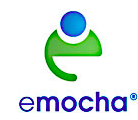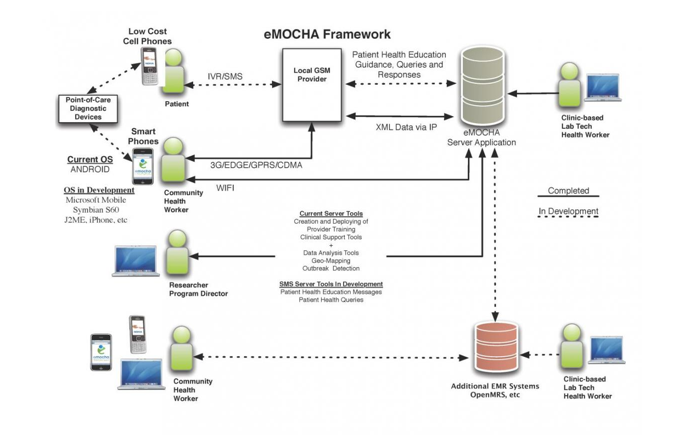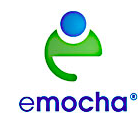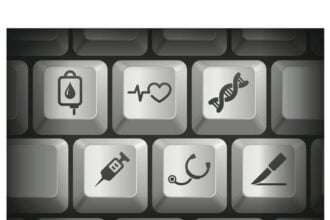

eMocha (electronic Mobile Open-source Comprehensive Health Application) is an open-source mHealth application that was developed by the Johns Hopkins Center for Clinical Global Health Education and the PEPFAR Uganda Distance Learning Initiative. eMocha delivers knowledge to the point of care, using mobile technology to help community workers gather data and educate about healthcare through multimedia training. eMOCHA was selected as a Finalist for the 2010 Vodafone America’s Foundation Wireless Innovation Program.
eMocha gathers data in multiple formats, plays multimedia courses and lectures and can facilitate communication with a consultant doctor. eMocha uses smartphones but data can also be entered and viewed through the web-based interface and through toll-free SMS. Data is encrypted and can be pushed to an internal database. Push notifications by the server can remotely request the user to perform certain tasks.
From the website:
“eMOCHA®is designed to efficiently coordinate and accomplish 5 very key steps for any clinical training program:
- To use clinical data collected from the point-of-care, to identify which health care workers in the community need to be trained.
- To analyze the clinical data, to identify the most critical knowledge or skill they need.
- To create and efficiently deliver high-quality training content to target these specific training needs.
- To evaluate the impact of this training, based on data collected directly from the field, to ensure that provider knowledge and skills improve and result in better health for their patients.
- To empower the providers in their communities, at the point-of-care, with the tools to monitor and improve their own clinical care practice.”

eMocha is being used in research projects in Uganda, Afghanistan and the US, with additional projects under development for Central America, India, Bangladesh, Zambia and Ethiopia. Some of the many eMocha projects are:
- The EXACT Study: EXposure Assessment in Current Time – collecting Injection Drug User (IDU) patient-level data in real time and facilitate communication with care providers or case managers.
- Domestic Violence Enhanced Home Visitation and Smart Phones (DOVE) – assisting home visitors to effectively and accurately identify abused pregnant women and delivering interventions that are aimed at reducing and preventing intimate partner violence.
- Ecobiosocial approach for Dengue Vector Control – improving dengue prevention by collecting data on and analyzing host ecological, biological and social (eco-bio-social) determinants of vector density.
- HIV Screening of Sex Workers – collecting information first from female sex workers in Kabul, Afghanistan, with plans to later extend data collection to other sites around Afghanistan and to other vulnerable populations such as intravenous drug users.
I asked Dr. Larry Chang, Director of Science and Implementation of the eMocha program at Johns Hopkins Center for Clinical Global Health Education if he would give us a few of his thoughts on the program and he was gracious enough to respond with this short interview:
And here is an additional video on eMocha:
To read other posts in this exclusive ongoing series, please visit the Mobile Health Around the Globe main page. And if you have a Mobile Health Around the Globe story to tell, please post a comment below or email me at joan@socialmediatoday.com Thanks!
video transcript of Dr Larry Chang video (by TranscriptionStar)
Joan: Hello. I’m Joan Justice and I’m here with Dr. Larry Chang, Director of Science and Implementation for the eMocha program at Johns Hopkins School of Medicine. I ask Dr. Chang to give us an update on the results of eMocha and what the future will bring for this project. Dr. Chang, tell us a little bit about the program eMocha and how you were different and maybe some of the results so far?
Dr. Chang: Sure Joan thanks a lot for having me. I think eMocha is different. It’s a Smartphone platform that was developed by Johns Hopkins and one of the differences is that not only do we have our own in-house software developers, but we have it buried within a research institution and so our focus is really not just developing on application, but its also on evaluating the application and really taking a rigorous research perspective on everything we do, so I think that really enables us to very nimbly address the variety of different issues which in health can potentially solve and also build out the evidence surrounding those implementation of these interventions and really building up the evidence-based for scaling up in health tools.
Joan: And you’re all over, you’re globally and you also have projects in Baltimore. Tell us a little bit more about the project with the drug users in Baltimore because that’s a good example.
Dr. Chang: Sure this is something we’re doing in collaboration with Greg Furk and colleagues [Phonetic] [0:01:39] at the school pubic healthcare. And in this project we have adopted eMocha to be used by folks who have used intravenous drugs and we’re kind of track in real-time their behavior, so they’re actually given Smartphones with an eMocha application on it, and they’re asked to fill it out whenever they have any sort of drug use behavior.
And additionally we’re also to track their locations so together by knowing their real-time behaviors as well as their locations the idea is can we better target public health interventions at them in the future, and I think this is going to be a paradigm that’s going to become more and more prominent in the future. We already see it. I did with advertising, but I think for health messaging its also going to be very powerful.
Joan: And globally you’re doing a lot of data gathering with these, these applications with the community workers when they go to visit families, they’re actually gathering a lot of data and I imagine that’s going to be very useful.
Dr. Chang: Yeah I think so, and we’ve done some field trials in Uganda for instance. And we found out that they’re also using eMocha equipped Smartphones had really appreciated it because it makes their job a lot more efficient overall. You can imagine some folks are carrying thousands of piece of paper and now instead they just have a phone where they can ask their questions and had that information collected.
I’m usually in a much cleaner and more efficient manner so its been pretty well-received and we also have a project in Afghanistan which has just gotten started, and that is very interesting because a lot of their concerns are related to security and just having a phone which you can password protect etcetera rather than having documents that if found on you maybe a compromising has been a sniffing [Phonetic] [0:03:23] issue and benefit for them.
Joan: Yeah oh I can imagine sure. What do you think is the — what thoughts do you have about the use of mobile technology in developing nations in general?
Dr. Chang: What we’ve already seen the incredible boom and very basic mobile phones were kind of this basic I guess should call them feature phones or dumb phones have exploded and uptake, but I think the next real shift is going to be the growth in Smartphones just like we’ve seen here in the U.S. And that’s going to be the way that lower middle countries are going to be accessing internet and with the powers of Smartphones that really do so much more I think you’re going to see a lot of really creative and innovative ways to use in health and then to your future.
Joan: What about the cost of this Smartphones though?
Dr. Chang: Sure that’s always a concern, but just like we’ve seen with the — were basic phones the cost of Smartphones have been going down dramatically and with the — with players from China and Indian manufacturers getting involved we’re seeing like Android equipped Smartphones already approaching a $100 price mark easily and I expect that price point to continue to drop over the next few years.
Joan: Wonderful. Thank you so much Dr. Chang, will definitely keep in touch to find out more about eMocha and future projects. Thanks.
Dr. Chang: Thank you Joan.







